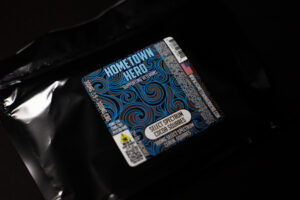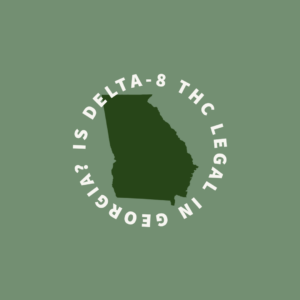Think You Know Everything About CBD? Think Again.
The world of CBD is growing so quickly that honestly, sometimes it’s hard to keep up. With all the changes to state and federal laws involving CBD, with government agencies making unclear statements on CBD’s future, and with new research on CBD coming out all the time, it’s easy to see where confusion may come in- people aren’t sure what’s true or what’s false when it comes to reading or hearing things about CBD, so we’re here to clear things up.
If you’ve heard things about CBD and you’re not sure if they’re fact or fiction, this is for you!
Here are 4 common CBD myths floating around debunked!
Myth #1: CBD Is Illegal/Legal
There’s been a lot of confusion in the CBD industry as far as legality/illegality goes. It is false to say that CBD is either totally legal or totally illegal, and here’s why.
The Truth: The 2018 Farm Bill was signed into law in December of 2018. With that, industrial hemp & hemp products were made federally legal in the U.S., and that includes CBD products that are made from hemp. According to the Farm Bill, any cannabis plant with less than .3% THC is considered hemp, and any product produced from that plant must remain under the limit of .3% THC. So, hemp-derived CBD is federally legal, as long as it meets those stipulations. Period.
That being said, some states have other opinions on whether CBD should be freely available, and as it stands there are still a few states that consider CBD to be illegal, regardless of what it was made from or what the THC content is. Iowa’s Attorney General has stated that CBD is still illegal in the state until the law says otherwise, but that might happen sooner rather than later, as there’s a bill being introduced in Iowa right now that would legalize hemp & hemp products in the state.
Long story short: Thanks to the 2018 Farm Bill, hemp-derived CBD is legal in the U.S. Some states say otherwise, but most of those states have impending legislation that would legalize CBD. Check to see if your state has any restrictions.
Myth #2: We Know Nothing About CBD
There seems to be a widespread idea both in the CBD community and in general that not much is known about CBD. For a while, it was challenging for researchers in the U.S. to conduct studies on CBD. But since the 2018 Farm Bill made CBD federally legal, the opportunity to research CBD has opened up beyond the few institutions that had approval beforehand.
The Truth: Even when research on CBD was limited in the U.S., other countries were conducting research and building evidence as to the benefits of CBD. Now that restrictions have been lifted, studies are pouring in on the potential uses for CBD.
As it stands, the FDA has only approved the use of a CBD-based medication (called Epidiolex) for one condition- severe epilepsy. There are many other reasons why people use CBD, though, and there are studies out there that support the use of CBD for things like pain, anxiety, sleep, and more. Even though these studies exist, they aren’t enough evidence to be considered conclusive. More research is needed, but more than that, better research is needed- in order to know conclusively that CBD can be used for other conditions, human model studies need to happen, and those are both challenging and expensive to do.
Also, while scientists theorize that CBD’s impact in the body is directly related to the endocannabinoid system, there are still a lot of unanswered questions as to how that works.
Long Story Short: While we do know some things about CBD, we don’t know everything. The U.S. government recognizes that CBD is beneficial for those with severe epilepsy, and while plenty of studies exist on CBD and other conditions, more conclusive evidence is needed before it’ll be approved for anything else.
Myth #3: CBD Is Addictive
This is one of the biggest misconceptions about cannabis in general, thanks to the widespread message that marijuana is a ‘gateway drug’, even though it’s pretty clear by now that marijuana use does not cause further drug use. However, the myth that cannabis is addictive has lingered, and now people are associating that idea with CBD.
The Truth: Cannabis is not addictive, and neither is CBD. Lots of people think because cannabis causes a high it’s automatically addictive, but that’s not true, and on top of that CBD can’t even get you high!
CBD, unlike THC, is non-psychoactive. Both THC and CBD interact with the endocannabinoid system, a system in the body that’s thought to be primarily located in the brain and peripheral nervous system, and seems to be responsible for things like maintaining homeostasis (equilibrium in the body’s systems), fight or flight responses, and more. THC has a direct interaction with the endocannabinoid system, which is what causes the ‘high’ sensation. CBD has an indirect interaction with the endocannabinoid system, so it cannot cause the ‘high’ sensation.
Neither THC or CBD has been found to be addictive, but if the concern over addiction stems from cannabis’ ability to get you high, then there’s no reason for concern over CBD.
Long Story Short: CBD is in no way addictive. The World Health Organization recently published a report in which they found that CBD was non-addictive, caused no withdrawal symptoms, and was generally well-tolerated.
Myth #4: CBD Is Sketchy
For every article you find on the benefits of CBD, you’ll find another calling CBD a scam, snake oil, sketchy. There’s a lot of reasons why this myth has come to be so widespread. And, to be fair, it’s not entirely wrong.
The Truth: CBD in and of itself is not sketchy, it’s just a part of cannabis plants. CBD isn’t a scam or snake oil either. There are plenty of testimonials online written by people benefitting from adding CBD to their lives, and there’s quite a few studies out there that have found CBD to be beneficial for a whole host of health issues & conditions.
CBD companies can be sketchy, though.
That’s why it’s so important to purchase your CBD from a company you know & trust. Recently, news stations in New York and Pennsylvania conducted lab tests on CBD products purchased from different retailers. A lot of the products ended up containing much less CBD than advertised, with one pack of CBD gummies clocking in at absolutely no CBD inside. Even worse, a few products were found to have lead and/or pesticide levels that are over legal limits.
There are so many CBD companies out there right now, and for unscrupulous owners, cutting corners when it comes to the safety and strength of their products is worth it if it means making a little more money. Long Story Short: Always do some research before buying CBD, and make sure the company shows recent lab testing so you truly know what you’re going to get. CBD isn’t sketchy, but some CBD companies certainly are. Make sure you’re buying from one of the good guys.



